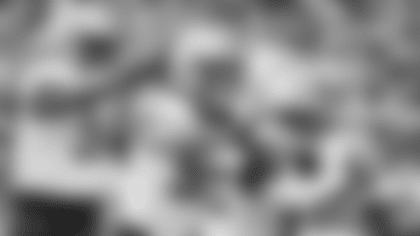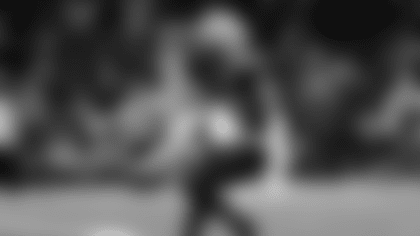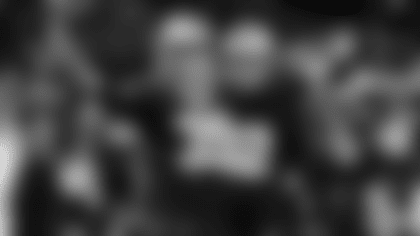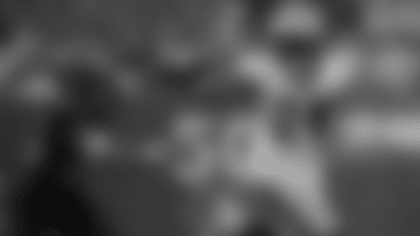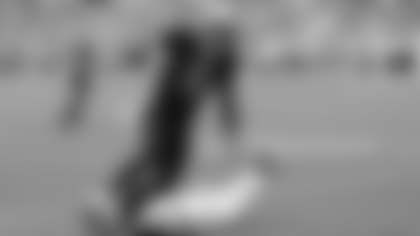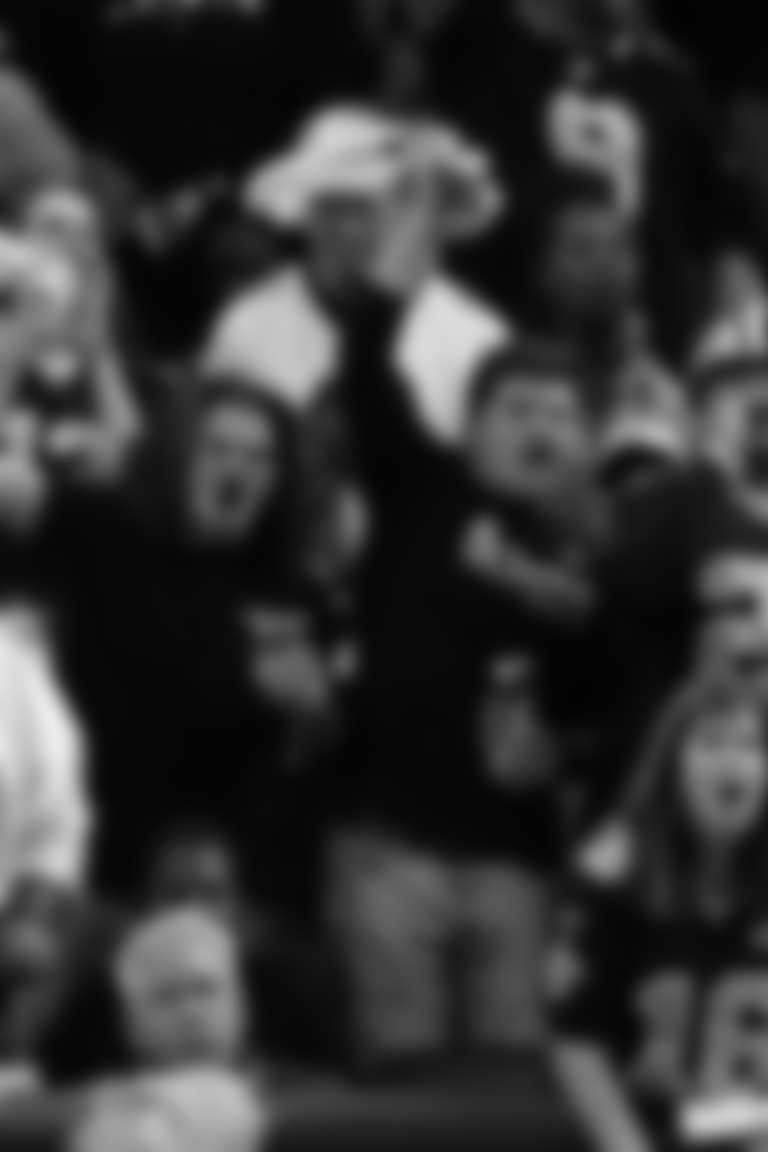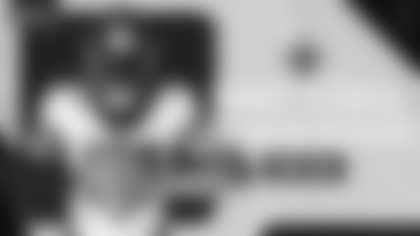New Orleans Saints Head Coach Sean Payton
Post-Practice Media Availability
Friday, November 17, 2017
With Mike Westhoff this week, was it more of an observation for him or was he able to implement some of the things he likes?
"It was a chance for us to get someone with a lot of experience. Bradford (Banta) and Kevin (O'Dea) will work with him. In a short week, it is more about some technique. It wasn't like we were changing everything. It's another veteran presence. He's someone who has coached in our league 38 years total. His health is good, his energy is good, and we're excited to have him."
How much thought goes into some of the things in the locker room like the ping pong table or the Nintendo?
"Very little for those two items, but there are a lot of items where there is more thought. Signs, what picture is where, goal boards, and all that."
Do you try and encourage them to do that?
"Here's what I like: we don't have a locker room and a players lounge, space-wise. I like when the players are here. Offseason, in-season, during the season, morning, I like when they're here and around. Certainly when we hit meeting time and we get going then some of that stuff (stays in the locker room). I just like having them here."
Along the culture lines, I know the roster changes all the time in the NFL, but was there a definite dividing line at the beginning of that 2015 offseason where you guys really wanted to rebuild the culture base of this team? I think you have 41 new players in that span.
"I would say in the last two years, we went from being one of the oldest teams to being one of the youngest teams. That happens gradually with acquisitions and drafts. I've said this before, but the significance of this year's draft class, when you're able to get as many guys that are playing valuable snaps as we're getting was important. So I think it's happened gradually. I don't think there was that one meeting where we said 'hey in the next two or three years (we need to get younger).' Certainly, going back two and half years ago, it was looking closely at our draft, the process, the evaluation. Just going again through how we're evaluating and how we're grading players, prototypes, and all those things. Jeff (Ireland) has been a big part of that. We were together in Dallas, so there's some things that we were familiar with that we've been able to change and I think it's been significant."
Was the roster age sort of the biggest impetus or was the culture change a big part of it to?
"It wasn't necessarily culture change. We valued, since '06, and identified what we saw and what we're looking for in a Saints player. You take the '06 draft and you have (Reggie) Bush, Roman Harper, Jahri Evans, Rob Ninkovich, Zach Strief, Marques Colston. All those guys have one thing in common: they're smart and they're tough. They all played 10 or 11 years, but they had good football makeup and I think that we try to never lose sight of that."
Why do you think that the screen game has been so successful this year?
"Some of it's varied, but I think you start with the offensive line. Part of the pressure of the screen game is the phasing, and the timing, and there's a lot of different types of screens. Some weeks it's a certain type of screen (rather) than another based on the front or how they play defense. Both Mark (Ingram) and Alvin (Kamara), when it involves the runners, have a pretty good feel, but sometimes it's a receiver. It varies, but I think that was something we thought we could improve in or could be improved in. Hopefully that can continue."
How has (Andrus) Peat done in those?
"Very good. Very good. Very athletic and he's playing well."
Do you have more different screens in your playbook relative to other teams?
"I don't know. We study other teams. If we see something unique from another team then we'll go back to our college days and put our name on it. I think there's certain teams that are probably better than others at screens so we'll look at those guys. Throughout we're studying the opponent and yet we're also studying what just took place that past weekend. Every week I'll have on a file last week's touchdowns. Every one of them, starting at the one-yard line all the way back to the longest touchdown of last weekend. We'll look at that and it might just be ideas. (We're) Kind of keeping up with what everyone else is doing and seeing if it fits. Does it fit what we're doing or not. That kind of thing."
From the last time you played Washington to where the defense is now, did you have reasonable timeline for how long you thought it should take to make that kind of progress?
"I don't know that there was a 'by here we should be.' Obviously, we knew we had to improve if we were going to be successful. There wasn't a time or due date. It was urgent, we have to get better, and even into the start of this season, It was not good enough. The confidence comes a little bit from doing it. I thought the Carolina game was a big game and then going on the road to London for a week as a team and playing well over there. Then you start believing and gaining some confidence."
Have you ever had a player wear a nose ring like (Alvin) Kamara does?
"I probably have, but I can't recall. You have to get to know Alvin (Kamara). It's funny, when we went to Tennessee and had dinner, and worked him out, I would say the thing aside from his ability is his football intelligence is extremely high. You guys have interviewed him. I never pay attention to the nose ring really and I look at him and all I think is 'that probably hurts.' That's all I think."
From what you've built with your offensive line and your running backs, how much versatility do you feel like you have as a play-caller when Drew (Brees) doesn't have to throw it 30, 40, 50 times a game?
"This is not anything new to football. If you're able to run the ball somewhat efficiently, it becomes easier for any play-caller because then you have play-action. If you're one dimensional it's more challenging. That won't change anytime soon. That's why when each week you talk defensive football, we have to stop the run game. We have to be able to do that. That's that back and forth battle. Fortunately, we're running the ball more efficiently now. Last week, and I said this, was a little bit of an exception and it doesn't happen often. Preparing for the next game and what you feel you have to do in that next game might be entirely different. Having choices rather than not having them, obviously, helps"
You mentioned the rookies, what about the new free agents you signed this offseason?
"Not overlooking guys like (Alex) Okafor, A.J. (Klein), there are a handful of them. Rafael (Bush) is back, Ted Ginn, I will probably miss a few here, Larry Warford. Again, good football makeup and smart. We knew A.J. because he was in the division so we saw a lot of him. They all fit a vision and I think the vision is important. Having a clear vision for what you want, what do you see the player doing."
Out of all of those guys, Larry (Warford) was really the only one who got top of the market money. How important was it to find the right priced guys that could come in and play better than their worth?
"There's always that balance of how much do we want to spend so that plays a part in it and I'm glad we got him."
Is it fair to say all three of those guys A.J. (Klein), Alex (Okafor), and Ted (Ginn Jr.) are playing more than their contracts might suggest?
"The beauty in our league is it is like sushi on a Wednesday when it says market price. If there's not a lot of people eating it then the market price (goes down). A lot of that is driven by whatever the market suggests. I don't think that's anything new."
In a salary cap league, is it fair to say you need more guys to perform up to or over their contract than below?
"I would always like guys to be meeting or out-performing than under. That would be a class-on economy."
With Marshon (Lattimore), this is what you all expected, but why were you guys so confident with his injury history and his one year of experience?
"That's a great question because hypothetically, if he hadn't had the injury history, there's a good chance he wouldn't have been there at 11. I do know this, from doing our homework at the program (Ohio State) and having two Ohio State players here and getting to know him, for a corner that can run with length and ball skills like he has, all of those things made it worth the risk. Make no mistake about it, when there is a selection like that there is a risk and that goes with it. Fortunately, it was something that he's been able to perform. He is smart, quickly he's picked up what we're doing."



